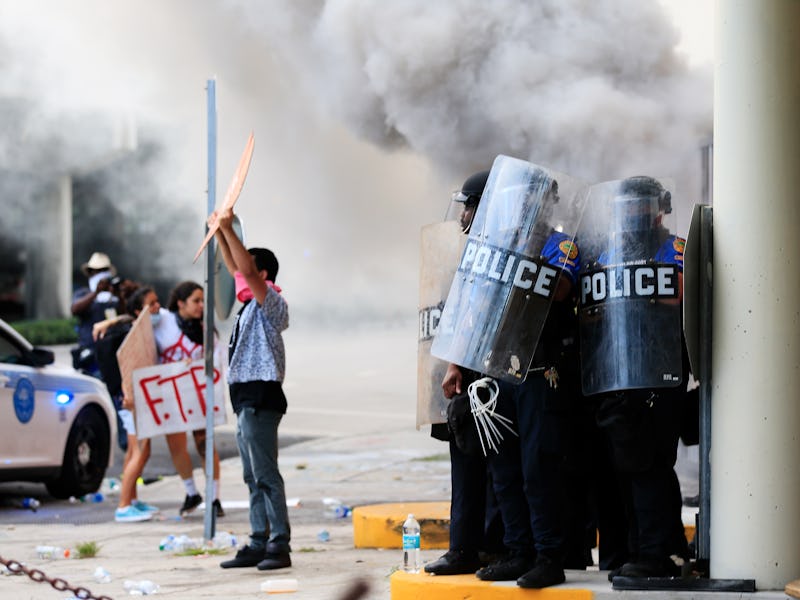Protesting during Covid-19: The unexpected health side effects
In this episode, we dig into America's long-existing public health emergency and why racism remains at its core.

As a wave of protests continued to spread across the United States, calls for justice over the killings of Black Americans by police have been joined by a growing outcry from the medical community. The Covid-19 pandemic has now pointed a bright red arrow on another dire public health crisis in America: racism. While it might not seem intuitive to everyone, doctors are taking this moment to yet again remind the US of one thing: Racial inequality against Black Americans has far-reaching effects and the evidence shows it’s a public health emergency.
Despite the health danger protesting can create, marches continued in cities across the globe well into June 2020. One crowd control chemical — tear gas — has scientists sounding the alarm. The use of tear gas — notably in front of the White House on June 1, 2020, to remove peaceful protestors so President Donald Trump could pose for a photo opp holding a Bible — has led medical professionals to demand an ethically responsible approach to public safety.
As more Americans protest despite the threat it poses to our overall health, we look at how to rebuild a public health system that keeps all of us as safe and healthy as possible.
In this episode of The Abstract, we dig into America's long-existing public health emergency and why racism remains at its core.
Our first story is about a complex issue that has many health experts in agreement: Covid-19 is a public health emergency, and so is racism. While the coronavirus has brought this idea into mainstream understanding, the notion that racism is a public health issue is not a new one. Experts say Covid-19 is just a stark reminder of this inequity, and that it's time to dismantle the unfair and unjust policies governing daily life in the United States.
Our second story is about another issue that has medical professionals concerned for protestors: chemical weapons. Describing tear gas as unethical, they worry it may heighten transmission of Covid-19 and are urging police to stop using it, bringing to light another layer of structural racism being perpetuated on a population that may be particularly vulnerable to its effects.
Read the original Inverse stories here:
- Why 1,200 health experts are urging cops to stop using this "horrifying weapon"
- Doctors clarify why racism against Black Americans is a public health crisis
Where to find us:
- Subscribe to The Abstract wherever you listen to podcasts: iTunes | Spotify | TuneIn | RadioPublic | Stitcher
- Follow Ali Pattillo on Twitter
- Follow Inverse on Twitter
- We're hosted and produced by Tanya Bustos
—
Right now, facts and science matter more than ever. That's part of the reason for The Abstract, this all-new podcast from the Inverse staff that focuses exclusively on science and innovation. Three new episodes are released a week, and each covers one theme via two related stories. Each features audio of original Inverse reporting, where the facts and context take center stage. It's hosted by the Tanya Bustos of WSJ Podcasts. Because we're Inverse, it's all true but slightly off-kilter. It's made for people who want to know the whole story. —Nick Lucchesi, executive editor, Inverse
This article was originally published on